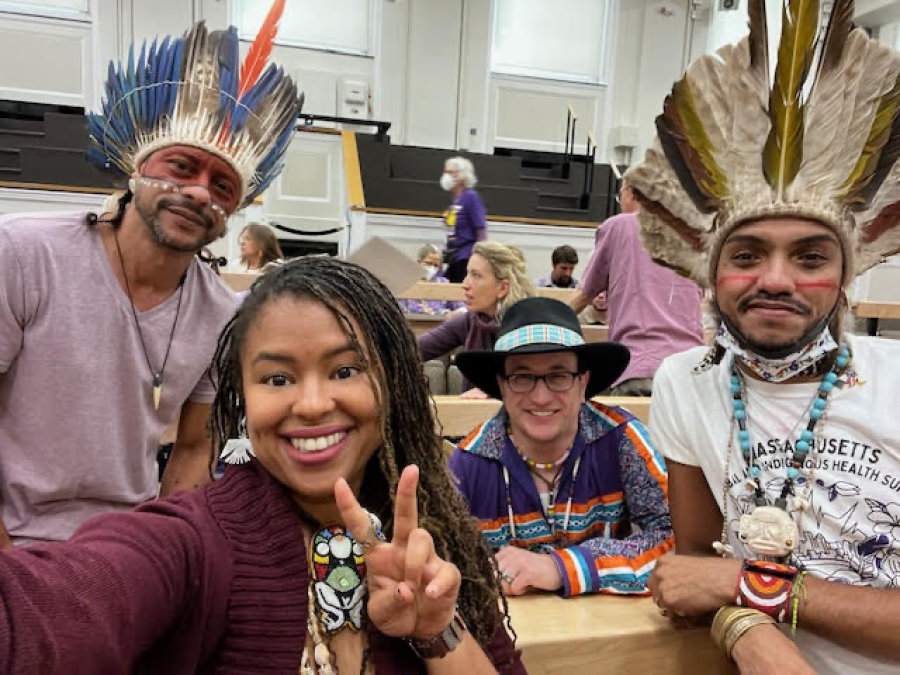Research is a vital aid to understanding the circumstances, problems, needs and concerns of children who are exposed to highly stressful experiences. Research can have considerable practical value for children, in that studies conducted with children in war zones and refugee communities often provide important baseline information for program and policy development and monitoring, fund raising and advocacy. Moreover, much recent research with children confronting adversity is cast within a rights framework in which the best interests and protection of children are paramount.
But research is not a neutral exercise and, especially in the context of armed conflict, civil strife and forced migration, has considerable potential to infringe upon the privacy, wellbeing and security of its subjects. For example, research may raise public awareness about children's situations, resulting in the sensationalising or stereotyping of their lives. Worse, research findings may be treated as intelligence information. Demographic data, for example, may fall into the hands of the military and be used to identify young people for conscription purposes. Information about killings or torture committed by children during combat may lead to their rejection by family or community members. Disclosure of the identities of children who are separated from their families may permit others to exploit or abuse them. Questioning children about separation, loss or death may sensitise them to painful issues of which they were previously unaware. The potential threats are numerous.
Even when research purports to further the interests of children it can have precisely the opposite effect.
These examples raise important questions about the ethical basis of research undertaken with children exposed to adversity. They highlight the need for comprehensive and strict ethical codes. It is striking, however, that studies of war-affected and displaced children are often conducted in the absence of such rules and guidelines. Several authors (Jareg, ed.; Richman, ed.; Morrow and Richards, 1996) point to the urgent requirement for consistent and appropriate ethical standards to be developed for use in research with vulnerable children.
What, then, are some of the ethical and moral obligations that scholars should meet in research with children confronting adversity? And what are some of the ethical dilemmas involved?
The first obligation for researchers has to do with informed consent. Obtaining informed consent means explaining in terms that children can understand who the researcher is, what the research is about, what it is to be used for and other contextual details before giving the intended subjects the opportunity to decide whether or not they wish to participate. While the need for informed consent may seem self-evident, it is, in practice, very difficult to achieve in the case of children. This is partly because the researcher, as an adult, negotiates with the research subjects from a position of superiority. In most societies children are socialised into pleasing adults and falling in line with adult decisions, regardless of whether or not they agree with them. Informed consent also involves explaining what the possible consequences of the research might be. This is especially important in war zones and among displaced populations as research in these settings may carry very real security risks for all concerned. The difficulty is that scholars and children alike may be unaware of possible consequences.
A second ethical consideration has to do with expectations. Effective research depends on building relationships of confidence and trust and an atmosphere of frank exchange and openness. Such conditions can be especially empowering to children who have suffered torment and oppression, for the researcher may be the first person to really listen to their problems and take their concerns seriously. Out of anxiety to offer sympathy and support, it is easy for researchers to engender false hope or to make promises that cannot realistically be fulfilled. Fulfilling moral responsibility toward children means that whilst their distress must be acknowledged and they should be given reassurance whenever appropriate, it is vital not to mislead them or to raise unrealistic expectations.
A third ethical obligation has to do with accountability. In recent decades, ensuring greater accountability to research subjects who are marginalised socially and economically or exposed to highly stressful circumstances has become an important issue for many scholars. This may mean giving far greater control over research questions, methods and dissemination to research subjects. It certainly means making every effort to ensure that the research process serves the interests of the subjects. Still, accountability can entail certain dilemmas. For example, where does accountability lie when researchers discover that children are involved in illegal or dangerous activities, such as the sale of arms or intelligence gathering? Who are researchers accountable to in situations where children are putting others at risk?
This brings us to the fourth consideration, which has to do with protecting children from harm. Again, this is a complex and multidimensional issue. First, as stated, it is important to minimise any risk posed by the research itself, although anticipating impacts is not necessarily very easy. It has been argued (Richman, ed.) forcefully that it is not ethical to expose children who are already vulnerable to additional risk through research that carries no benefit to them. Second, a decision has to be taken regarding whether or not to intervene when children are at risk. Researchers may not have the skills or means to provide support or assistance, but there should be an obligation to learn about and access such resources (where they exist) prior to commencing research. This implies, for example, the need to establish a system of referral for children who are emotionally or psychologically vulnerable.
The fifth ethical obligation for researchers centers on respect for the research subject -- for the integrity of both the subject's feelings and his or her testimony -- and is closely allied to the concept of accountability. Respect for children means not negating or dismissing their feelings, even when these are violent and difficult to respond to, as with expressions of anger or a desire for revenge. However, it also means respecting children as capable beings. Researchers are often concerned that children make unreliable informants, believing them to be incapable of logical thought, prone to manipulation by peers or adults and to lying and fantasising. Hence the tendency to use research instruments that rely heavily on researchers' interpretations. Certainly children may lie and they may be manipulated by others, but then the same applies to adults. The use of multiple research methods and of several sources of information normally helps as a cross-check in such situations. Besides, as has been noted by some (Garbarino et al., 1990), it is less important to ask whether someone is lying and more important to reflect on why he may be doing so. Moreover, researchers are often poor listeners and interpreters of children's lives, and in many situations would do better to allow their subjects to do their own interpretation.
Given the many ethical and practical challenges associated with research with children in situations of extreme adversity, scholars often elect to study children through information provided by their carers, teachers or other significant adults. For a number of reasons, this strategy has certain major shortcomings. Adults in a position of responsibility with regard to children may not be very aware of children's experiences or feelings. For instance, parents and other carets may minimise children's emotional distress out of guilt at not having been able to adequately protect them from violence, displacement or loss. Carets may be depressed themselves and hence oblivious to children's conditions.
For their part, teachers are not always very sympathetic toward children who have undergone adversity. Such children may abscond from school. They may have learning difficulties, find it hard to concentrate during lessons, or disrupt class. Hence, they tend to be regarded as troublesome and as meriting punishment rather than sympathy. Also important is the fact that in many countries class sizes range from 35 to 100 students and teachers cannot therefore be expected to know about the circumstances or problems of individual children.
Undoubtedly, researchers are challenged to consider the most effective practical strategies for maintaining high ethical standards throughout their investigations. Sometimes, though, ethical problems in situations of adversity are not so much inherent to the research process itself as they are a consequence of a lack of due regard by scholars for the highly sensitive research context. For example, researchers frequently resort to methods, such as interviews, that closely resemble interrogation procedures. In war zones and among displaced or asylum-seeking populations, interviews can invoke considerable alarm and suspicion. The distinction between research and official intervention may not be apparent to children, who may fear that the information they give could jeopardise their personal or family safety, lead to a rejection of asylum or other adverse consequences.
Similarly, much research with children confronting adversity is based on the use of precoded questionnaires, stress exposure scales, or checklists of trauma symptoms. These tend to reflect the professional expertise and preoccupations of the researcher more than the subjective experience of the researched and hence can appear deeply invasive and disrespectful toward children. Indeed, such instruments can act as a barrier to understanding children's feelings and responses to adversity and therefore distort research findings.
Globally, a growing number of scholars are using participatory research methods, such as focus group discussion, participant observation, roleplay and visual methods like drawing and mapping, as a means of establishing a new ethical basis for research. Participatory methods have the explicit aim of transferring control of the research process to research subjects, building directly on their priorities and concerns and reflecting their words, concepts and understandings rather than those of the researcher. While this trend is to be welcomed, its implications and impacts need careful monitoring. Participatory research processes have their own limitations and difficulties. One of the more fundamental problems with the use of such methods among populations affected by armed conflict, civil strife or displacement is their heavy reliance on information gathered from groups rather than individuals. The difficulty with this is that -- as indicated -- in the context of social and political turmoil, information that enters the public domain may be used as a weapon to harm the informants.
Used in the appropriate manner and conducted with sensitivity, research can be an extremely powerful instrument of social betterment for children confronting adversity, but this power can also be wielded to the detriment of children, even if unintentionally. Researchers who focus on children in difficult situations and operate within a human rights framework should seek to agree upon ethical codes and guidelines that transcend disciplinary and political boundaries and are subject to close scrutiny and monitoring. They should also work to develop innovative and flexible research methods that have the capacity to both capture children's concerns and perspectives and provide for consistently high ethical standards.
References & further reading
Gabarino, J., Stott, F. & Faculty of Erikson Institute (1990). What Children can Tell Us; Eliciting, Interpreting and Evaluating Information from Children. San Franciso-Oxford: Jossey-Bass.
Jareg, E., Ed. Some Guidelines to Listening and Talking with Children who are Psychologically Distressed. Unpublished mimeo. Oslo: Redd Barna.
Morrow, V. & Richards, M. (1996). The Ethics of Social Research with Children: an Overview. Children & Society vol. 10, pp90-105.
Richman, N., Ed. Ethical Issues in research with Children. Unpublished mimeo. London.
Article copyright Cultural Survival, Inc.



